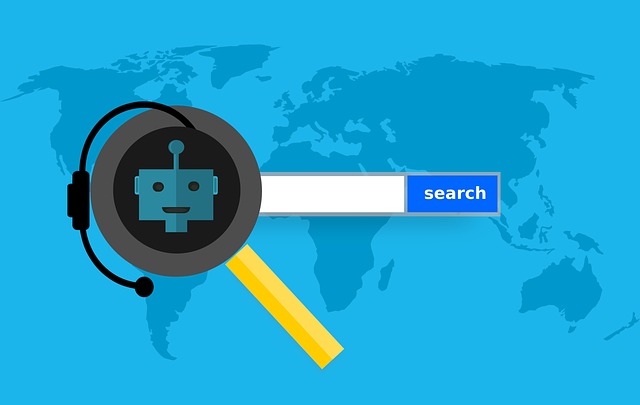Are you tired of annoying pop-ups, sluggish computer performance, or suspicious activity on your device? If so, then it’s possible that your system has been infected with spyware malware. Spyware is a type of malicious software that can secretly gather information from your computer and send it to cybercriminals without your knowledge. But don’t worry! In this blog post, we will guide you through everything you need to know about spyware malware removal programs. From the different types of spyware to the top-rated removal tools available in the market today – read on for expert tips and recommendations on how to protect yourself from these pesky threats!
What is Spyware?
Spyware is a type of malware that can infiltrate your computer system and monitor your online activities without your knowledge. This malicious software can track sensitive information such as passwords, credit card details, or browsing habits and then send them to cybercriminals who use this information for their own gain.
Spyware often enters your system through freeware or shareware programs that you download from the internet. These unwanted programs are attached to legitimate software packages, making it difficult to detect them during installation.
Once spyware has been installed on your device, it can cause several issues such as slowing down the performance of your computer, display pop-ups ads or redirecting you to unfamiliar websites. Moreover, spyware can also leave backdoors in your system which allows hackers to access other parts of the network.
It’s important to note that spyware is different from viruses or worms because they primarily target user data rather than damaging the entire operating system. Therefore, removing spyware requires specialized tools designed explicitly for this purpose.
What are the Different Types of Spyware?
Spyware is a type of malicious software that can be installed on your computer or mobile device without your knowledge. It can gather information about you, track your online behavior, and even steal sensitive data like passwords and credit card numbers.
There are several different types of spyware that cybercriminals may use to target unsuspecting users. One common type is adware, which bombards you with unwanted pop-up ads and banners. Another type is keyloggers, which record every keystroke you make in order to capture login credentials or other sensitive information.
Trojan spyware masquerades as legitimate software but actually contains hidden malware that can harm your system or steal your personal data. Meanwhile, rootkits hide deep within the operating system to avoid detection by security programs.
There’s ransomware – a particularly nasty form of spyware that encrypts all the files on your computer and demands payment for their release.
It’s important to understand the different types of spyware in order to protect yourself against them. By using trusted antivirus software and avoiding suspicious downloads and websites, you can greatly reduce the risk of falling victim to these malicious attacks.
How to Protect Yourself from Spyware
To protect yourself from spyware, you need to take a few precautions. The first step is to be cautious when downloading software or clicking on links. Be sure to only download software from reputable sources and avoid clicking on suspicious links.
Another important step is keeping your operating system and software up-to-date with the latest security patches. These updates often include fixes for known vulnerabilities that can be exploited by spyware and other types of malware.
It’s also essential to have an antivirus program installed on your computer that includes real-time scanning for spyware. Regularly scan your computer for any threats and remove any detected infections immediately.
Be mindful of the information you share online, especially personal details like passwords or financial information. Use strong passwords, enable two-factor authentication whenever possible, and avoid public Wi-Fi networks when accessing sensitive data.
By taking these steps, you can significantly reduce the risk of falling victim to spyware attacks. Remember that prevention is always better than cure when it comes to cyber threats!
The 5 Best Spyware Removal Programs
When it comes to protecting our personal information, having a reliable spyware removal program is crucial. With so many options available online, it can be overwhelming to choose the right one for you. Here are five of the best spyware removal programs that have been tried and tested:
1) Malwarebytes – This program has consistently ranked as one of the top anti-malware tools on the market. It’s easy-to-use interface allows users to quickly scan their computer for any threats.
2) Norton Power Eraser – Developed by cybersecurity giant, Norton, this tool uses advanced scanning technology to detect even the most stubborn malware.
3) AdwCleaner – Focused specifically on removing adware, this free tool from Malwarebytes targets unwanted pop-ups and browser hijackers.
4) Spybot Search & Destroy – A long-time favorite among tech enthusiasts, Spybot offers both free and paid versions with a variety of features such as rootkit detection.
5) SUPERAntiSpyware – This program boasts over 50 million downloads worldwide and is known for its thorough scans which identify any malicious files or registry entries on your system.
No matter which option you choose from these top-rated spyware removal programs, make sure you regularly run scans to protect your personal data from potentially harmful cyber attacks.
Conclusion
Spyware is a major threat to the security and privacy of your computer. Whether it’s monitoring your online activity, stealing personal information or slowing down your system performance, spyware can cause significant damage if left unchecked.
The good news is that there are many effective spyware removal programs available on the market today. By choosing one of these programs and following best practices for protecting yourself from spyware, you’ll be able to keep your computer secure and running smoothly.
Remember to always stay vigilant against potential threats by regularly scanning for malware and keeping all software up-to-date. With the right tools and strategies in place, you can protect yourself from even the most insidious forms of spyware.











FIND US ON SOCIALS